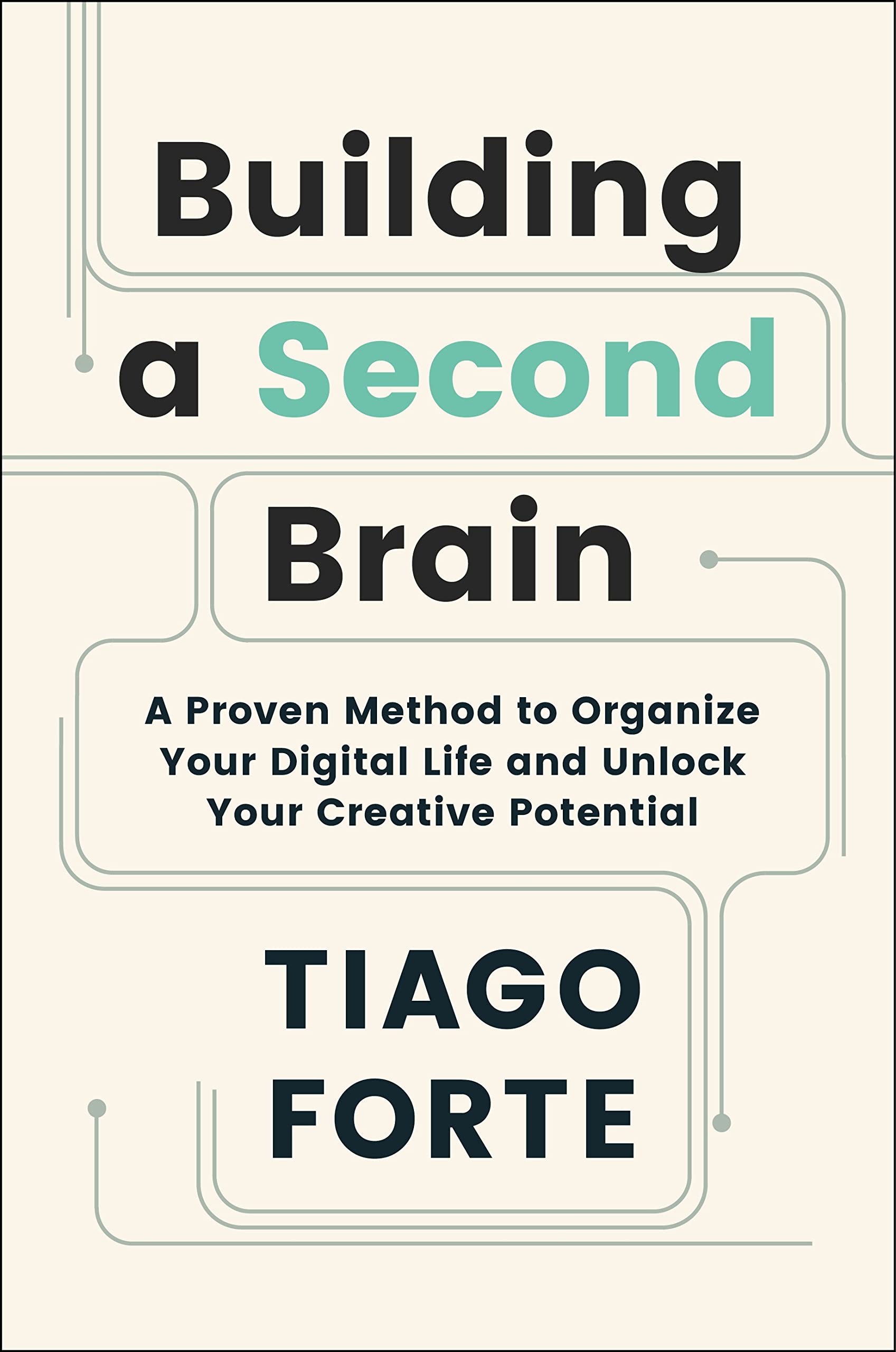
Notes on
Building a Second Brain
by Tiago Forte
• 3 min read
CODE
The book is basically presenting a framework called CODE:
- Capture: make it frictionless but seek to only capture the essential .
- Organize: use PARA.
- Distill: do progressive summarization. At the first few levels, just highlight bold/with highlighter in your notes to make the important more visible. And if you want/have time/are dealing with an important note, you could add an executive summary. Good when you revisit often.
- Express: share what you learn. See “units of work” and “use what you learn” for details.
It seems good, but I don’t think each point is great.
I dislike how Forte encourages you to capture so much.
It could be easily misunderstood, but there is some clarification.
It is a constant balance in capturing only what is essential, yet still keeping the capture process easy.
And when the capture process is easy, it’s also much easier to capture the inessential.
Favorite questions
Forte encourages keeping a list of 12 questions, like the late Feynman, that interest you.
Once you discover or learn something new, test it against the questions to see if they’re answered.
Attention
Tiago proposes that attention is your most precious resource as a knowledge worker.
Naturally, we should protect it.
For this reason, our second brain system should aim to free attention, not the opposite.
This also illustrates how playing around with, and spending too much time on, things like setting up your notes app, systems, plugins, etc. can be a step in the wrong direction.
Obviously, being home in your environment matters, but remind yourself of diminishing returns here.
Units of work
Any time you do something—you pay attention to something—you end up with byproducts in your second brain. Units of work/information.
These are a big part of the flywheel for you getting knowledge work done.
Every unit itself is valuable. But even further, you enjoy the compounded value of the emergent properties of multiple, different units linked together.
Having this information readily available and based on previous work/learning means you are better suited to take on new projects. After all, you already have (some) information ready for them.
As another useful corollary, we must remind ourselves that with attention being our most scarce resource, we cannot afford to let the product of our attention go to waste.
Intermediate work, notes, byproducts, ‘sawdust’. These things matter.
Aim to never start from scratch (How to Take Smart Notes). Then whenever you start something new, you always hit the ground running.
When you work at your desk at some task, you build up immensely complex mental structures. Whenever you step away (or switch task / get distracted), this structure is lost. What can you do? Write things down! Record. Express.
It’s not enough to just divide the work into smaller units. You don’t want to make the task more complicated.
We’re trying to remove friction & complexity, not add it.
Break the work into smaller units, each of which constitutes a ‘save point’.
Use what you learn
Verum ipsum factum.
We only know what we make.
— Giambattista Vico
You have to do something with what you learn. You have to create something from it.
- a note
- a tweet
- a speech
- a video
- an image
And so on.
Liked these notes? Join the newsletter.
Get notified whenever I post new notes.